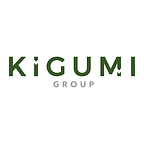A High-Level Guide to Ethical Fitness (Part 1 of 5)
How can we bring ethics back into our daily lives?
Getting people to talk about their character and ethical behavior isn’t easy.
Dropping words like “ethics,” “morality,” and “goodness” in casual social situations is tricky: while most people are eager and interested to hear more, they are (understandably) uncertain how to approach a subject as impossibly large as ethics and our moral selves. It’s a subject that most of us intuit underneath the minutiae of our daily lives (i.e. the minutiae of feeding, dressing, earning, etc.), but rarely address directly.
As a result, most of us — by which I mean adults in modern life, myself included — are deeply rusty on how to talk about ethics or morality in a secular way, either because we have lost the tools and vocabulary to examine our daily lives in a meaningful way, or because we never were taught those tools in the first place. [1]
This leaves us in a dangerous position. Without the vocabulary and tools to talk deeply about ethical decisions and dilemmas, we are emotionally amputated, unable to access the most meaningful parts of ourselves and left to participate in only the most superficial aspects of living (i.e. consuming).
In addition to the impact on an emotional level, there are detrimental effects intellectually and professionally: without the tools to talk about ethical subjects in an everyday way, we are unable to comprehend the complexity and impact of our actions and our decisions, leaving us fixated on superficial factors of a situation and short-term gains.
This guide (split into a five-part series) is about how to start to change that, starting with a concept we’re introducing called ethical fitness.
Ethical fitness is about how we talk about and handle the everyday moral dilemmas we are all faced with. It’s about how we process and manage our feelings in a way that is constructive: for our own emotional well-being, for our families, and for the companies or communities we’re part of. Most importantly, ethical fitness is something that is relevant to everyone, of any age and background, because it’s what preserves the best, most human parts of ourselves (the parts that feel, seek, compare, and create).
Each of the next four installations of the guide will cover one important way to cultivate ethical fitness — in both yourself and those you care for.
Who should read this guide?
The guide is written primarily to help parents, teachers and caregivers understand how to cultivate ethical fitness in their children on a daily basis, but the methods, if desired, can also be adapted to professional development and leadership training in more corporate settings.
Read Part 2 of the guide here.
Note: Ethical fitness is not a wholly new concept — our particular understanding of it is derived from the field of character education and virtue ethics. Similar concepts can be found throughout the body of philosophical work stretching from modern ethicists like Julia Annas and Alasdair MacIntyre back to Aristotle and Mencius. Secondly, we use the terms ethics and morals interchangeably in this series.
[1] I specify ‘secular conversations’ because, in my own experience, I find it the case that most individuals who participate in and self-identify as part of an organized religion (or as a member of a spiritual community) tend to be more familiar, in at least a theoretical sense, with theoretical ethical vocabulary and frameworks. However, this is not to say that those who self-identify as religious or spiritual are better than or a step ahead of those who don’t.
